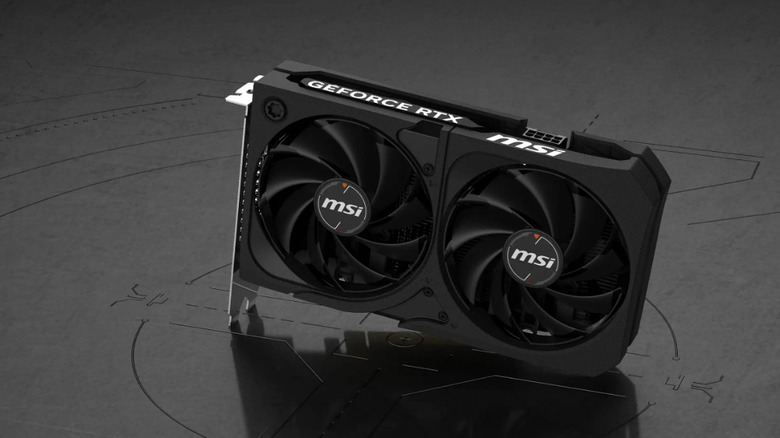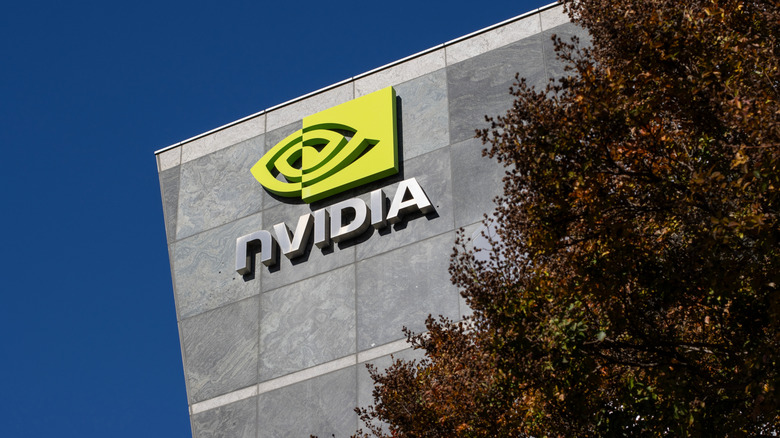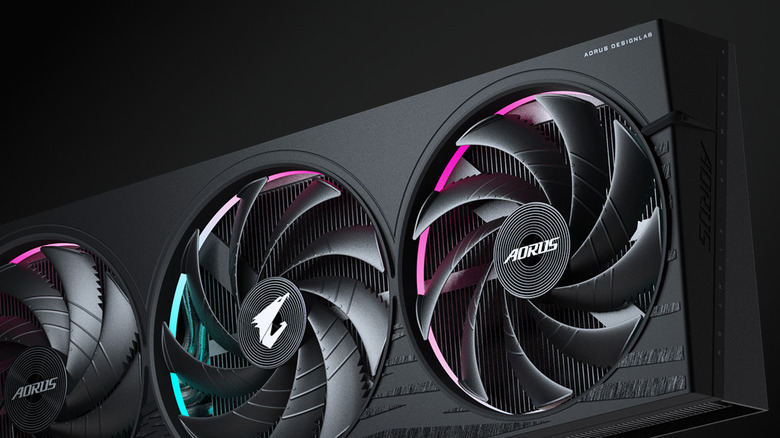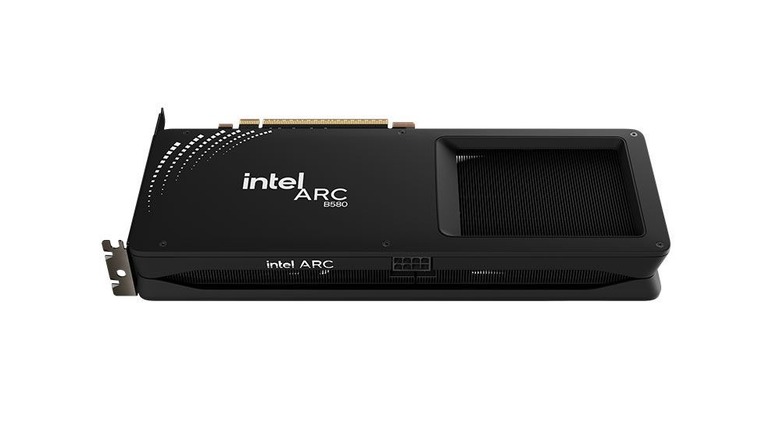Why Gamers Should Avoid The NVIDIA GeForce RTX 5060 (And Alternatives To Consider)
When it comes to consumer grade PC graphics cards, there's no challenger to NVIDIA's dominance. The company's GeForce RTX line of graphics cards is practically synonymous with modern PC gaming. According to the latest numbers from the Steam Hardware Survey, the most popular by far are the 60-class of cards, which occupy first through eighth place in the rankings, as well as the tenth. As the most budget friendly tier, these are the cards most PC gamers will go with.
That popularity meant the hype was real for the launch of the brand-new RTX 5060 GPU. When the 50-series was first unveiled in January, NVIDIA made bold claims regarding this card, promising that it would enable over 100 frames per second in the most GPU-intensive games such as "Cyberpunk 2077" and popular competitive titles like "Marvel Rivals" with maximum quality settings at 1080p. But warning signs were apparent from the beginning. NVIDIA's numbers were based on its latest DLSS technology, which uses AI to generate multiple hypothetical frames for each frame rendered by the game itself, meaning the real frame rates were likely to be far lower. Additionally, the company made the concerning choice to ship the 5060 with only 8GB of video memory, a bare-bones figure in 2025.
Sure enough, things boiled to a head this week when NVIDIA officially launched the card at Computex in Taiwan. Amid reports that the company had manipulated reviews and threatened independent journalists who wouldn't test the 5060 in the most favorable conditions, it became clear that NVIDIA was worried about the card's real-world performance. Sure enough, the unaffected reviews show the 5060 to be worth skipping, especially since NVIDIA's competitors offer some strong alternatives. Here's why gamers should skip the RTX 5060.
NVIDIA is allegedly manipulating reviews
We'll get to the raw performance numbers in a bit, which on their own make the NVIDIA GeForce RTX 5060 worth skipping. It seems that, in an attempt to bury any negative reviews, the company allegedly attempted to manipulate the tech press. The story was initially broken by Gamers Nexus and Hardware Unboxed, two independent, YouTube based outlets. Their videos claimed that NVIDIA had threatened them, with Gamers Nexus stating they had been notified that access to interviews with NVIDIA engineers, which viewers had enjoyed, would be cut off unless a set of conditions were met when covering the 5060.
Specifically, journalists claimed that NVIDIA had insisted the 5060 be tested only with full AI multi-frame generation enabled for preview testing, and only alongside the RTX 2060 Super and 3060, which do not support frame generation. Additionally, only a select few games were permitted, presumably because they were known to run well on the entry level GPU. While it could be argued that a company like NVIDIA has the right to control access to its products, these reports create a clear conflict of ethics for reviewers and other journalists.
Further, NVIDIA did not seed review samples of the 5060 to reviewers, and withheld its drivers until the day of the launch, which was conveniently scheduled during one of the world's largest tech expos in Taiwan. Only some publications, who allegedly agreed to NVIDIA's conditions, were given access to the drivers in advance. This ensured that most of the journalists qualified to test the cards would not have time to run proper tests on the cards. Even so, many forged ahead regardless to deliver unbiased reviews of the product, and what they found was not pretty.
The 5060's 8GB of VRAM isn't enough in 2025
There are three different versions of the NVIDIA GeForce RTX 5060: the base 5060 with 8GB of video memory (VRAM), the 5060 Ti with 8GB of VRAM, and the 5060 Ti with 16GB of VRAM. That last option may be worth considering, but the card almost every gamer should avoid in 2025 is the entry level 5060. Given the requirements of the newest games, 8GB feels woefully inadequate.
Across 18 games tested, Hardware Unboxed saw the 5060 hitting an average of 88 frames per second at 1080p with Ultra quality settings. The last generation 4060 Ti saw nearly identical results. Meanwhile, PC Gamer resorted to updating its review of the 5060 live, publishing benchmarks on the fly. It clocked, with some newer titles struggling to be playable without AI frame generation, at 1440p. For example, "Alan Wake 2" would only run natively at an untenable 11 FPS, and even with AI enabled was only able to achieve 71 FPS. "Cyberpunk 2077" was even worse, pumping out only 3 FPS natively with ray tracing enabled, though it jumped to a barely tolerable 46 FPS at 1080p. That's not to say there aren't any games that will run well on this card, but rather that it's not going to be very future-proof.
Because of NVIDIA's aforementioned alleged attempts to anodize coverage of this relatively anemic card, there aren't many more reviews available as of this writing. However, it would be shocking if they got better results. For those shopping on a tight budget, there are thankfully more options than ever in the entry end of the GPU market. Here are some alternatives to consider.
AMD and Intel make viable alternatives to the 5060
NVIDIA may dominate the consumer GPU market, and one of its graphics cards is a user pick for the best graphics card in 2025. However, AMD and Intel have graphics cards on the market which were remarkably well received by reviewers. In the AMD corner, weighing in with up to 16GB of VRAM, is the Radeon RX 7600 XT, one of the best affordable GPUs of 2024. It ranges from around the same price to just slightly more than the RTX 5060, but it's a worthwhile investment.
The 8GB version hangs in the same performance bracket as the 5060 card in PC Gamer's ongoing testing, so we'd expect the 16 gig variant to outperform the NVIDIA card once we start to see some head-to-head benchmarking between the two. While writing this article, AMD swept in to unveil the Radeon RX 9060. As the successor to the RX 7600 XT, the 16GB version may be a great option in this segment, though testing is still needed.
Intel is finally in the conversation, too, after dropping some GPUs last year that shocked the PC gaming world by being pretty darn decent. The Intel Arc B580 is the closest in performance to the RTX 5060 while being over $50 cheaper in many cases. Even so, it includes 12GB of VRAM, and therefore gives the 8GB 5060 Ti a whooping in a lot of titles according to testing from Hardware Unboxed, which should translate to a similar advantage over the base model 5060. If you still want to stick with team green, consider stretching up to the 16GB version of the RTX 5060 Ti, which handily beats the 5060 across the board in multiple tests referenced throughout this article.



